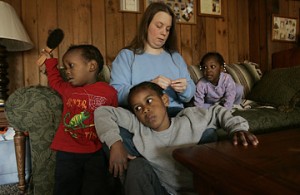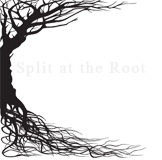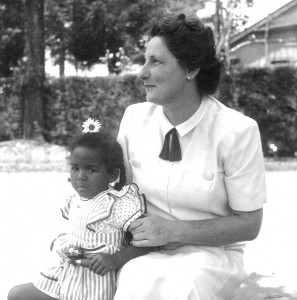
Should Race be a Factor in Adoptions?
The Donald B. Johnson Adoption Institute, a non-profit, has for decades studied concerns that affect transracial adoptions. Their findings underline the issues I dealt with as a child such as feeling uncomfortable in the presence of Black people, lacking a mechanism to recognize and confront racism, and no sense of racial pride and did not wish to be identified as a Black. At the time and place, my German parents offered me Marian Anderson and Ralph Bunche as role models, which in the Guatemala of the fifties did not make an impression on me. Regardless of how much one reads about the world becoming color-blind, racially blurred, the bias against Black people is still well in place. Because the White culture is so dominant, it is particularly important that all Black children – but particularly those adopted into White society and culture, and are thus removed from their ethnic support groups – be taught about the many, significant scientific, social, and cultural contributions Africans, and African descendants in the American Diaspora had offered humanity. White adoptive parents have it easy in this age of Internet research possibilities where abundant material in every field is within easy reach. The rewards go both ways, as parents and children together learn about the wealth of knowledge with which Africa has gifted the world.
 My contention with articles such as these is that they reinforce the dominance of the adoptive parents over that of the birthparents. Socially, it’s understandable but it does not address the root cause of an adopted child’s suffering. And that is, having had a mother who could just walk away and leave it behind. An orphaned child is allowed to grieve the loss of parents; an adoptee is treated like a transplant that needs to adjust to new people, without given the opportunity to grieve the huge loss of having been separated from the body that gave her/him life.
My contention with articles such as these is that they reinforce the dominance of the adoptive parents over that of the birthparents. Socially, it’s understandable but it does not address the root cause of an adopted child’s suffering. And that is, having had a mother who could just walk away and leave it behind. An orphaned child is allowed to grieve the loss of parents; an adoptee is treated like a transplant that needs to adjust to new people, without given the opportunity to grieve the huge loss of having been separated from the body that gave her/him life.
Once the child looks in the mirror and sees the difference and starts to ask questions, the “elephant in the room” has to be addressed honestly and openly. For an adopted child knowing about, better still knowing the mother personally reinforces its acceptance of self and a recognition, at a profound level that it, and its mother, are both being treated with understanding and respect.
It is my contention that the disrespect toward the birth mother adoptive parents and society in general harbor toward her needs to be addressed. The issues that baffle parents of adopted children and adoption institutions, and they try to find solutions for lie quite simply in their not honoring the child’s birth mother. Regardless of the social environment she may have come from, empathy for her condition must be dealt with. After all she was a mother who carried the child to term. By that mere fact, the child is intricately connected to her. Children who know the truth and their mother, are able to deal with difficult situations much better. Open adoptions are an enormous improvement; it is a child’s right to know the birth mother, and a birth mother’s right to know where, and with whom, her child is. A child that is allowed to develop empathy for its mother’s situation will not judge her but be understanding of its birth- and adoptive mother’s position in its life. For that openness, it will love both mothers.
From experience I know that the profound sense of abandonment will remain for the rest of the adopted child’s life. Therefore, once the source of depressions, alienation, unexpected sadness is understood, the condition, emotional or physical, can be addressed and dealt with. The wound, of a mother being able to walk away from her child, is what needs to be addressed in every single adoption case.
Read the Time Magazine Article here:
http://www.time.com/time/health/article/0,8599,1809722,00.html
OCT

